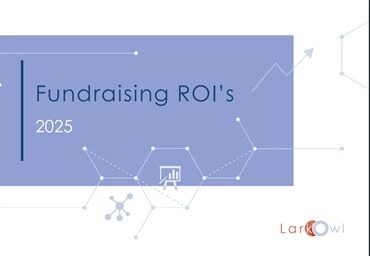
“Help you. Help me.” Introducing the charity CompetiColleague
The other week, I met up with a contact who works in the private sector. We were talking about online networking. As you do. And then I mentioned something that made him spit out some of his coffee.
"Why are you connected to your competitors on LinkedIn?" he asked me incredulously. "I'm not connected to any of mine."
And I can see his reasoning. He needs to maintain his competitive advantage. Why would he give his expertise, recent activity, or contacts away for free? Why would he jeopardise the secrets of his success?
Why would he help others at his own cost?
Fast forward a few weeks, and I was interviewing a fundraiser. She said "if I need to rewrite my major donor strategy I could ring three people and have their major donor strategies on my table within half an hour."
Surely that wouldn't be the case in other industries?
So this got me thinking. Generally speaking, in the charity world, we help our competitors. We are all Competi-colleagues now.
But why do we do it? I think it's developed for a few reasons:
It suits the voluntary sector ethos. As charities compete for donors and volunteers, we increasingly have to articulate the benefits of giving money or time. It's not about altruism. So we already understand that giving support can help us as much as receiving it.
We're learning that peer support and advice can be mutually beneficial. It can work better than attending a seminar, for example. And it's growing. Action Learning Sets are increasi





Thanks for sharing this Richard- it’s such an important topic. I’ve only been in the sector for a few years but I would say that my experience of collaboration and sharing has been quite mixed. In the role I am in at the moment, it is generally fantastic and I am really pleased how helpful other people are to our organisation. But at the small charity I was at before I was constantly dismayed at the ways in which we were ignored and weren’t included in things. Hopefully that isn’t the norm but I think it can sometimes be the experience of smaller charities without lots of networks and connections.
Thanks for commenting, Alex. It’s good to know there are people out there that see the merit in collaborating more with their ‘competitors’. Hopefully your experiences previously are the exception that proves the the rule!